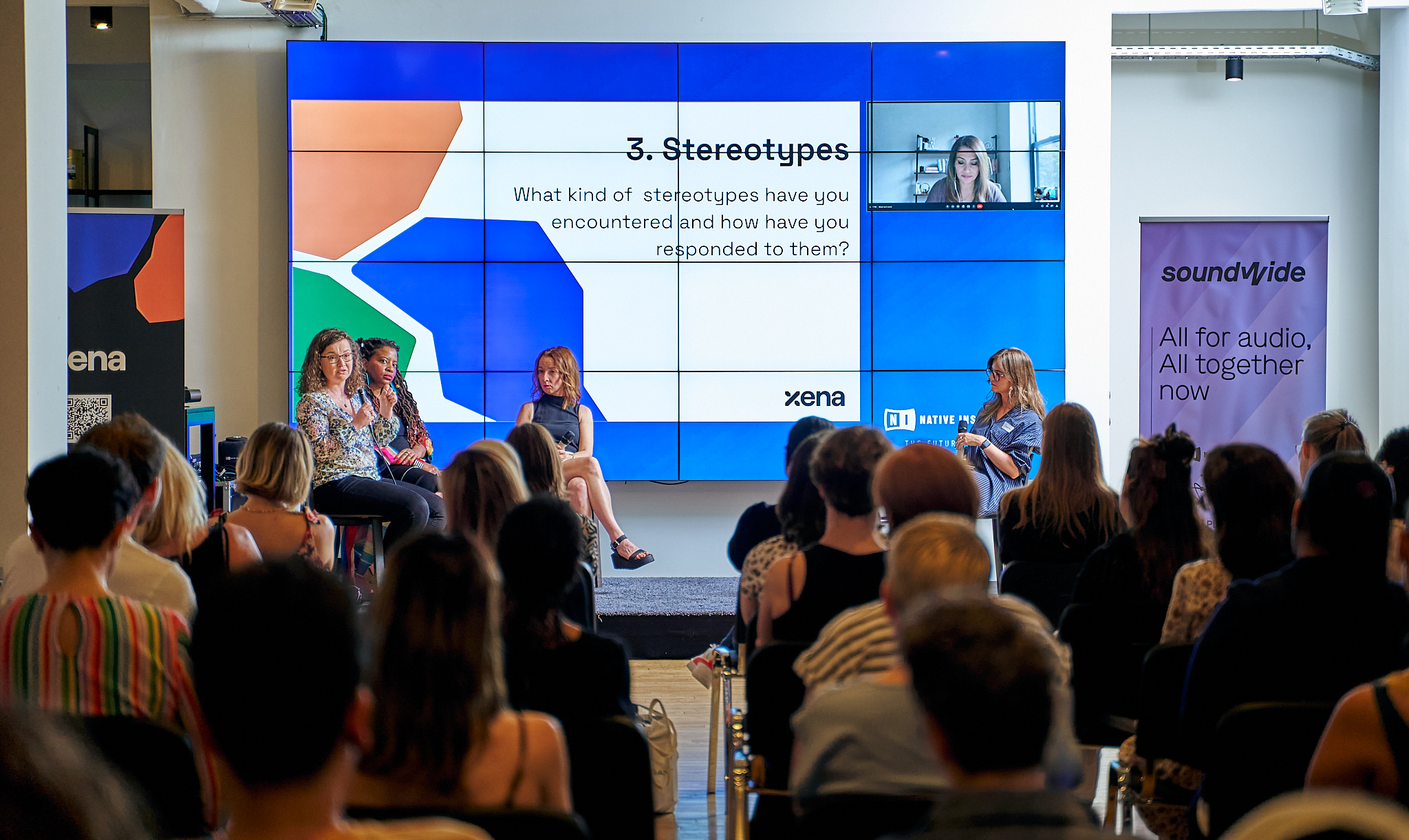5 min. read
Why Female Founded Businesses Are Not Backed By Venture Capital
According to Lina Chong, Investment Director at Target Global

From N26 to Tier Mobility to Contentful, many of Berlin’s most notable tech startups have been backed by venture capital. Berlin has certainly become a hotspot for entrepreneurs and capital alike. Which led us to think, what do VCs look for before investing in a start-up? But most importantly, what percentage of female-founded businesses are backed by venture capital? Sadly, funding for women-led startups globally made up as little as 2.3% in 2020.
Target Global, one of Berlin’s “leading technology investment platforms” has less than 10% female-founded businesses in their portfolio. This is why we sat down with their Investment Director, Lina Chong to break down the basics of venture capital, how it works, and who it’s suitable for. Ready to take notes?
Before her profession as Investor Director, Chong started her career as an entrepreneur operating two start-ups, one of which was acquired by LivingSocial. Now working in early-stage funds, Chong’s role is to review incoming investment deals and present the right opportunities in front of the right partnerships. Essentially running the whole process of investment strategy, from closing to due diligence. So spotting tech unicorns is just another day in the office for Chong. A total Xena badass, if you will.

First things first, what exactly is venture capital?
If you’re still trying to wrap your head around financing options then allow us to give you the low-down on venture capital – straight from the experts. Venture capital is a form of investment that provides finance and operational expertise for early-stage businesses with huge growth potential. For Chong, working at an early stage fund means they “provide finance for companies that are anything from pre-product to pre-revenue, or a maybe with a little bit of revenue or a little bit of traction in terms of users.”
Target Global covers a big range of business models and verticals including FinTech, InsurTech, Digital Health, PropTech, and Consumer Subscription Marketplaces. Chong describes the team at Target Global as “pretty generalists.” Meaning they can invest in anything that they find as a team to be interesting. Her personal favorites? “B2C and Software as a Service. Sounds like a fun job, right?
What VCs look for before investing in a business?
So you have a fantastic start-up with great growth potential. But how do you pitch your business to venture capital investors? This really depends on where you are as a company. Here are some of the indicators Chong looks out for when assessing a company…
1. Pre-Product Company
If you are a pre-product company, investors will want to know that you can keep the lights on in the first couple of years. A VC will assess your team, your domain expertise and how experienced your team is at operating a high-growth company.
2. Market size
You might be surprised to learn that one of the most common reasons why VCs pass on investment is because the market is not big enough. Your business or product can pivot a little, but there still needs to be “a massive addressable market out there to capture.”
If you already have a product then a VC will assess the market signals. Starting with “product stickiness, cohorts, and a lot of retention curves”. They’ll use this to assess whether the market you’re going after is an interesting one or not.
3. Knowing your unit economics
Prepare to be tested. Because “not every business in the early stage has a good sense of their unit economics.” A VC will ask questions and create different scenarios to make sure you understand your unit economics in your industry, or within your peer group. These are questions that will give VCs confidence that you know what direction your business is going, that there is potential for sustainable growth and profitable revenue.

Why is there a low percentage of women backed by VC?
The burning question – why is there a significantly lower percentage of women backed by venture capital? Chong was quick to remind us that, “a lot of businesses fail to secure investment from venture capital. It’s not necessarily women-led businesses.” But she was prepared to offer us her anecdotal opinion of why she believes women fail at securing VC.
1. Not a venture case, type business
“Their business is not a venture case, type business.” Every entrepreneur might think that venture capital is a potential source of capital. Wrong. This is really not the case. Venture capital is capital available to a very specific kind of business which is:
—> Tackling a massive market
—> Has the headroom and the engines to grow very quickly
“So you’re essentially going to be burning a lot of money to write, build a product and acquire customers. You’re also going to be growing with an exponential growth curve.”
From Chong’s experience, women tend to go for businesses that are highly cash flow generative. “They’re a little bit more safe and secure. They usually tend to play on services or skill sets.”
2. The SMB of the internet
A new term for us at Xena is what Chong uses to describe businesses with a nice niche. What she likes to refer to as “the SMB of the internet”. This is a business with not a lot of technology and may be selling something very specific. Rewind to what we taught you about unit economics – “the margins are not as fat”.
3. Being too conservative in their approach
A reoccurring theme that we too often see, as does Chong. “Women very often tend to undersell themselves and their vision.” Chong finds women to be conservative in their pitch. What investors want is for you to sell the big picture, or sell a dream.
4. Lack of women building technical companies
Only one in four startups have a female founder. This statistic is very real for Chong who believes there is a pipeline problem for VCs with women founders. Few women founders go after companies that are a little bit more technical in nature. “It’s less sexy to build because of all of the technology but it’s more scalable.”
Chong’s one wish?
“I’d love to see a world where at least half of the deal flow I get on a daily and weekly basis had women on the founding team. But that’s not really the case at the moment.”
Don’t we all…
Advice for women starting a business
With Chong’s impressive experience and being one of the few women in venture capital, we wouldn’t leave the room without asking her what advice she would offer women before starting a business.
1. Understand all your options for financing
Venture capital is not the end-all, be-all. And if Chong was to start a third company she would probably never raise capital again.
2. Think about scale
If a high-growth, high-risk venture capital, bankable type company is what you’re after then think about scale. From day one, your company should be a product and technology-driven organisation.
3. Think big
“Don’t be afraid to pitch a vision, even if a part of you knows that there’s a high chance of failure.”
And there you have it. Your own playbook to starting a business backed by venture capital. You are welcome.
Want to learn more about founding a business in tech? Sign up for our Founders Club Meetup on the 21st July. You won’t want to miss it.





